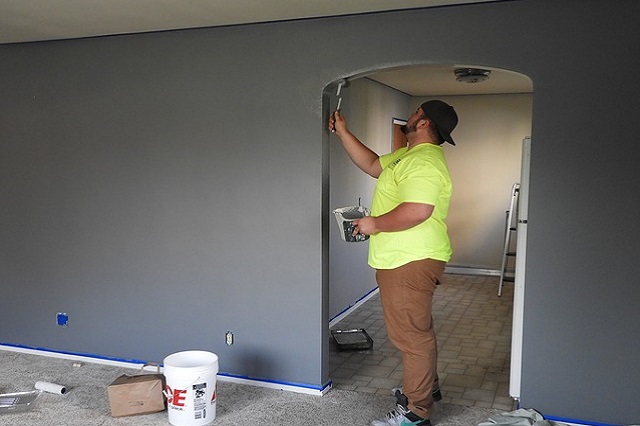
A recent article in the New York Times said that more homeowners are staying put in their homes, many choosing home renovations and improvements, over selling and moving to bigger or better homes.
Two Factors Promoting the Home Renovation Trend
Low mortgage interest rates are making home renovations more appealing. Higher home prices, which inflate the value of existing homes, making it easier for homeowners to tap into home equity to fund renovations is another factor. In fact, a new report by ATTOM Data Solutions indicated that one in four mortgaged homes in the U.S. now is “equity rich,” meaning the homeowner owes less than half of the home’s value.
For those who’ve decided that home renovating is the best option and figured out the financing, there is still one big decision to make – whether to stay or leave during the renovation process.
Leaving vs. Staying During Home Renovations
Here are five points to consider to help you to decide whether to stay or go when renovating your home:
- Size of Project – If a project involves more than half of your home, the general rule of thumb is that you should strongly consider moving out. However, if moving just isn’t an option or you really don’t want to move for the short-term, you should determine whether there is a remaining area in your home that isn’t being renovated where your family can perform all their necessarily daily functions, like cooking and bathing. Then ask yourself whether this space will allow you enough privacy and separation from workers, as well as the noise, mess and smells associated with a home renovation.
- Length of Project – If the project can be done fairly quickly, and you can afford to move out for the short term, then strongly consider it. Most contractors will tell you that they can work faster when a home is unoccupied. But also keep in mind that home renovations often take longer than originally estimated. Therefore, if you’ve factored the costs of renting an extended stay hotel for two months, some experts will say you should double, triple or even quadruple that just to be safe.
- Money – You should weigh the costs of renting an extended stay hotel room or a separate home against the costs of longer construction times that can be expected when workers have to do their jobs while accommodating people, their living spaces, pets and routines. Sometimes it’s just not possible to move the whole family out during a renovation, but keep in mind that the job may actually go faster and end up costing you less if you’re not living in the home.
- Health – While staying in your home during a renovation doesn’t have to be unhealthy, it’s worth noting that there can be hazards that you might not want your family exposed to on a daily basis. For example, during different stages of renovation, you can expect dust and debris floating in the air, as well as smells from materials like adhesives and paints being used. Therefore, if you are going to stay at home for the project, be sure to set clear expectations with your contractor about the use of plastic barriers that separate work areas from your family’s living space, as well as cleaning up at the end of each day. Also, if someone in your family has severe allergies, asthma or other health issues, you should definitely take that into consideration when making your decision about moving out or staying.
- Work Monitoring – It’s much easier to keep an eye on the progress of the construction work being done to ensure it is going as you expected when you are living in the home. You get to see changes as they occur daily and can point out when something is not being done as you expected or when work quality is not up to par and so forth. If you decide not to stay in your home, you should plan regular visits to check often on the work progress.
Lakeside Title Streamlines Real Estate Transactions
Lakeside Title Company offers title insurance and numerous title services to streamline residential and commercial transactions in Maryland, DC, Northern Virginia and Southern Pennsylvania. To learn more about our comprehensive title-related services, give us a call at 410-992-1070. We look forward to the chance to serve you!




